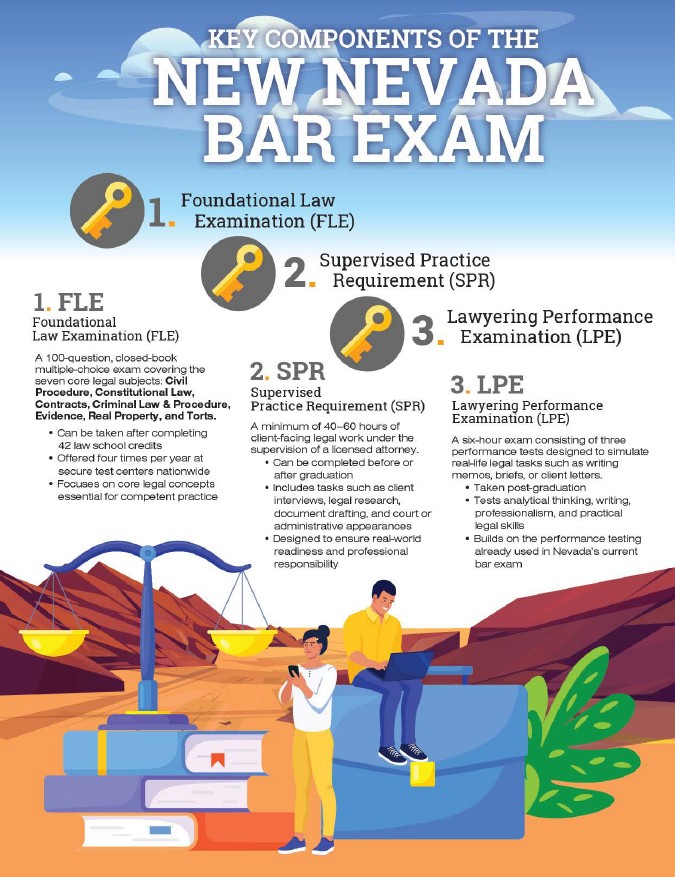Nevada’s New Bar Exam Trades Rote Memorization for Real-World Lawyering
Written by: Mike Weatherford
Just as doctors don’t get licensed without real-world experience, Nevada’s next generation of lawyers will soon face a new licensing regime that will test skills that multiple-choice questions alone can’t capture.
In May 2025, the Nevada Supreme Court approved the Nevada Comprehensive Licensing Examination, which will shift the Nevada Bar Exam from the traditional two-and-half day exam to three new components. The changes reflect a broader, smartphone-era shift in education from memorizing facts to developing critical thinking skills and, for Nevada lawyers, a type of supervised apprenticeship. Aspiring attorneys will work directly with clients under the guidance of Nevada licensed lawyers.
“I think at its core, there was a gap between what licensure exams were assessing and what attorneys actually need to be able to do to be competent practitioners,” said Lydia Nussbaum, associate dean for experiential legal education, director of the Thomas & Mack Legal Clinic and professor of law at Boyd Law.
The new licensing requirements will evaluate skills like objective legal reasoning, negotiation, client communication, legal research, and persuasive writing. “Only a small subset of those core competencies are tested in the traditional multiple-choice bar exam and essay bar exam,” Nussbaum said, noting those formats rely heavily on rote memorization.
Another novel part of the new licensing structure is that two of the three new components can be completed while students are still in law school - supervised practice and a 100-question multiple-choice exam. The third new component is not really new, but will be streamlined – a one day exam of performance tests where applicants work from a limited library of legal materials. The shift addresses a longstanding problem: graduates spending most of their post-law school summer cramming for the bar, often sacrificing income and paying thousands for prep courses.
Attorneys still haunted by their own bar exam memories should resist the urge to “pull up the ladder” on future lawyers, Nussbaum said. "The new approach offers a chance for them to serve as mentors while ensuring a shared goal: that licensed attorneys have the skill set and the competence to actually be good lawyers for our community.”
